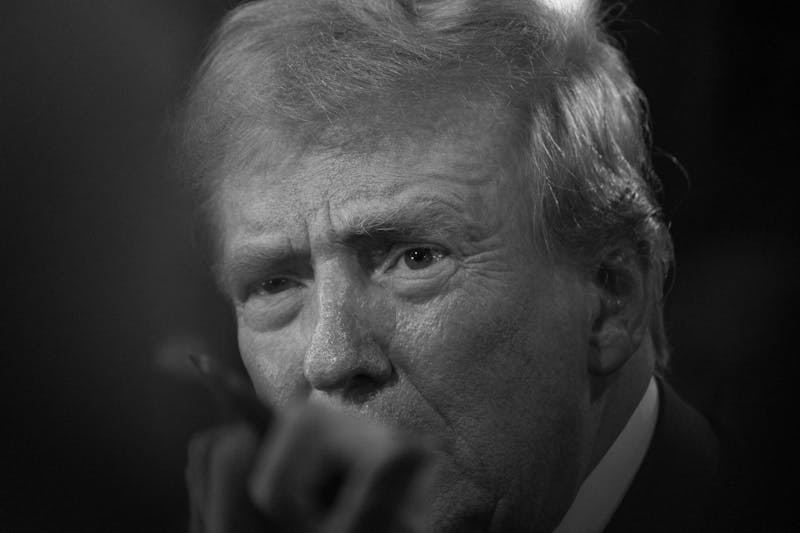From Jamil Smith's "Invisible Man," 'Fall '94 I feel that I need to reflect upon the pressure not to succeed that an academically successful black student receives because it is an epidemic that is spreading among the black youth of this country. This occurs both in high school and in college. If young people cannot realize how ultimately self-destructive this pressure really is, the entire black culture suffers. In October of 1992, I attended a lecture by Temple University Professor and African-American historian Dr. Molefi Asante at John Carroll University. He related a story in which a young eagle was raised in a chicken coop and as a result, believed and acted as if he were a chicken. As I entered a public school for the first time in 1989, I was unjustly perceived as this "eagle" by many of my black peers - having been "raised in the midst of the chickens" for eight years at private school. The condemnation and ridicule I received was a result of their misconception that my personality was characteristically "white." When I transferred, I expected to enter a different world, and in some ways it was. For one, it was decidedly more hostile than I anticipated. Ironically, I came to Shaker with the expectation of having classes with more black students. Because I enrolled in many honors level classes which, unfortunately, few black students take, it became much the same situation as my private school. Not only was I separated academically from most of my black peers, but socially, I was always the odd man out. At my first Homecoming dance people laughed at my attempts at dancing, a skill that was foreign to me at my private school (and still is foreign). As I tried feverishly to keep up and learn the steps, one student looked over at me, laughed, and said, "Get off the floor, Oreo." The eagle in Dr. Asante's story did not understand his true identity because he had no exposure to other eagles. Since chickens cannot fly, the eagle never knew he could fly until he was told this by another eagle he encountered later in life. My private school experience, though it did not cause me to lack cultural identity, did not give me much opportunity to interact with many black students. In the insulated environment of private school, I was not berated for striving for excellence. In Shaker, however, the scenario was much different. I have often been called "Oreo," "sellout," "wanna-be-white-boy" and several other names which I can't even remember. It's almost a clichZ now, but I have always strived to be the best I could be, and be a strong black young man, which I believe I am. I also strongly believe that it is my responsibility to help other black young men to achieve all of the success that I have. In high school, I saw the report cards of male ninth and 10th African-American students who participated in the Minority Achievement Committee (MAC) under the tutelage of myself and 12 other black upperclassmen. Most realized that education is the answer and raised their grades, but there are many others who seemed to let MAC's message simply pass them by. One student told the MAC leaders that he just didn't care about anything, including how he did in school. Another told me he liked F's. These were simply defense mechanisms for refusing to seek help for their academic troubles. What those young brothers needed to do is realize that, as I told them, colleges don't give a damn about your reputation among your boys and the ladies; they care about your grades. The extracurriculars and board scores help, but their main focus is on your grades. However, since they are led to believe that getting good grades is "white," they don't achieve to their potential. The only class I took in high school which was predominantly black was African-American History. Surprisingly, even in what I expected to be a supportive environment, I was subjected to attacks on my character. When my teacher once announced that I had received the top grade on one of our tests, another student called me a name which I do not care to recall from across the room. "If you think that I 'act white,'" I retorted, "then what is 'acting Black?'" The leaders we were learning about in that very classroom - Malcolm X, Dr. Martin Luther King, Jr., W.E.B. DuBois - did not act or talk as he did; did this mean they were not Black? Young black students, particularly those in high school, must learn that success should be celebrated, not regarded as success in "the white man's world." Young people would rather assume that success is "white" than find the instances in which our people have succeeded. Success is not exclusive to one race; EVERYBODY can succeed if they just apply themselves. Just because the media would like to show one negative black person - one who seems to want to be called a "nigga"- on the news or in the paper doesn't mean that we all should be put under the same label. We must stop acting like the "niggaz" that the media makes us all out to be and start acting like responsible, articulate black students who will make a positive impact on this society. "Acting Black" is a facade created by certain "niggaz" that only care to bring everyone down with them into their private hell in the name of their twisted image of "Blackness." Dr. Jawanza Kunjufu, noted author, asks similar questions in his book To Be Popular or Smart. "Logically speaking, if being smart is acting white, how do you act Black? What is Blackness? Being Cool?" I say no. Jamil Smith is a freshman English and History major from Cleveland, Ohio. Invisible Man will appear alternate Tuesdays.
The Daily Pennsylvanian is an independent, student-run newspaper. Please consider making a donation to support the coverage that shapes the University. Your generosity ensures a future of strong journalism at Penn.
DonatePlease note All comments are eligible for publication in The Daily Pennsylvanian.







